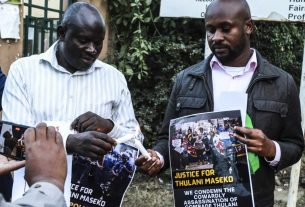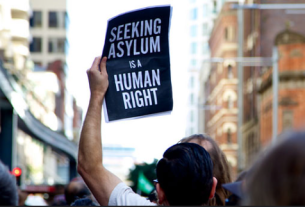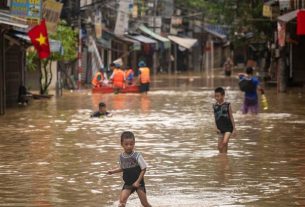This year’s United Nations climate summit (COP30) is taking place in Belém, gateway to Brazil’s Amazon rainforest. Brazil’s President Luiz Inácio Lula da Silva began the summit by announcing a global investment fund to pay tropical forest countries to keep trees standing. Indigenous peoples have made their presence felt throughout, demanding recognition for their contributions as environmental defenders.
These events placed forests at the heart of the summit and raised expectations that it would advance efforts to protect climate-critical forests and the communities sustained by them.
At the national level, there’s been momentum. This week, Brazil finalized the process of formal legal recognition of four Indigenous territories.
In one of them, in Mato Grosso state, illegal ranchers threaten to encroach and convert the forest to pasture. The news has given renewed hope to the Manoki, the Indigenous group whose territory it is. “We will take our place in our territory with our heads held high, without fear, as our elders taught us,” Giovani Tapura, a leader of the Manoki Indigenous people, told Human Rights Watch.
Brazil also announced that it had advanced the process of formal recognition of the boundaries of another 23 territories. The evidence is clear, particularly in the Amazon region, that demarcated Indigenous and Afro-descendent territories register less deforestation than comparable areas.
But so far, the actual negotiations within the climate conference have not addressed commitments to stop deforestation and uphold the rights of forest peoples.
The latest draft of the COP30 outcome document doesn’t include a roadmap for forests even though countries previously agreed to end and reverse forest loss by 2030.
The COP30 outcome document should include a commitment for governments to begin work immediately on a time-bound roadmap to end forest loss as well as combat forest degradation.
Any forest preservation roadmap should also reflect an explicit commitment to advance Indigenous peoples and local communities’ land rights. In practice, this would translate into the legal recognition of customary land rights, combatting illegal invasions of traditional territories, strengthening governance of communally managed land, and investing in sustainable livelihoods for traditional communities. The roadmap should explicitly call for funding community-led conservation.
COP30 should mark a turning point for protecting climate-critical forests. Governments should develop a roadmap to end deforestation and advances rights.


